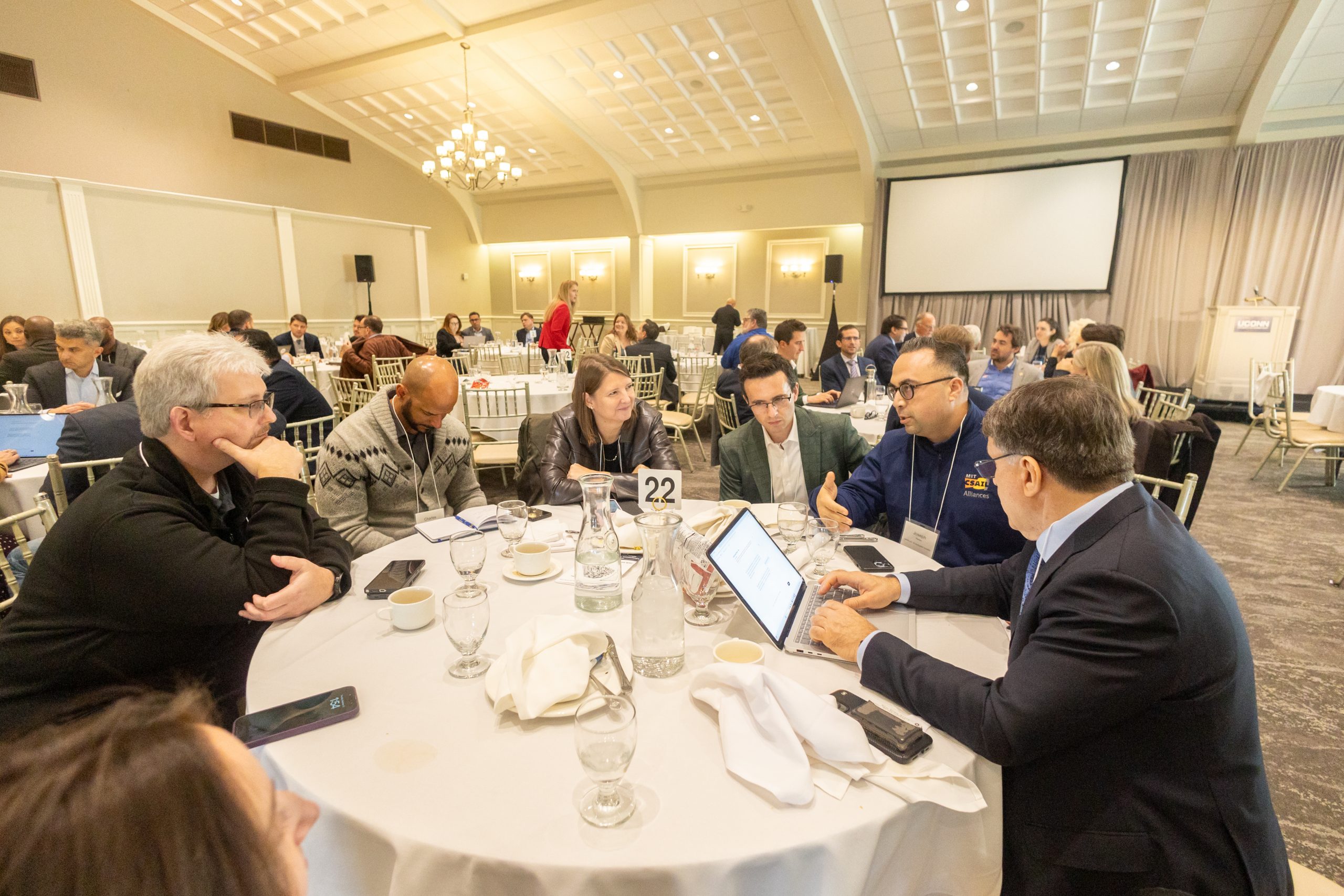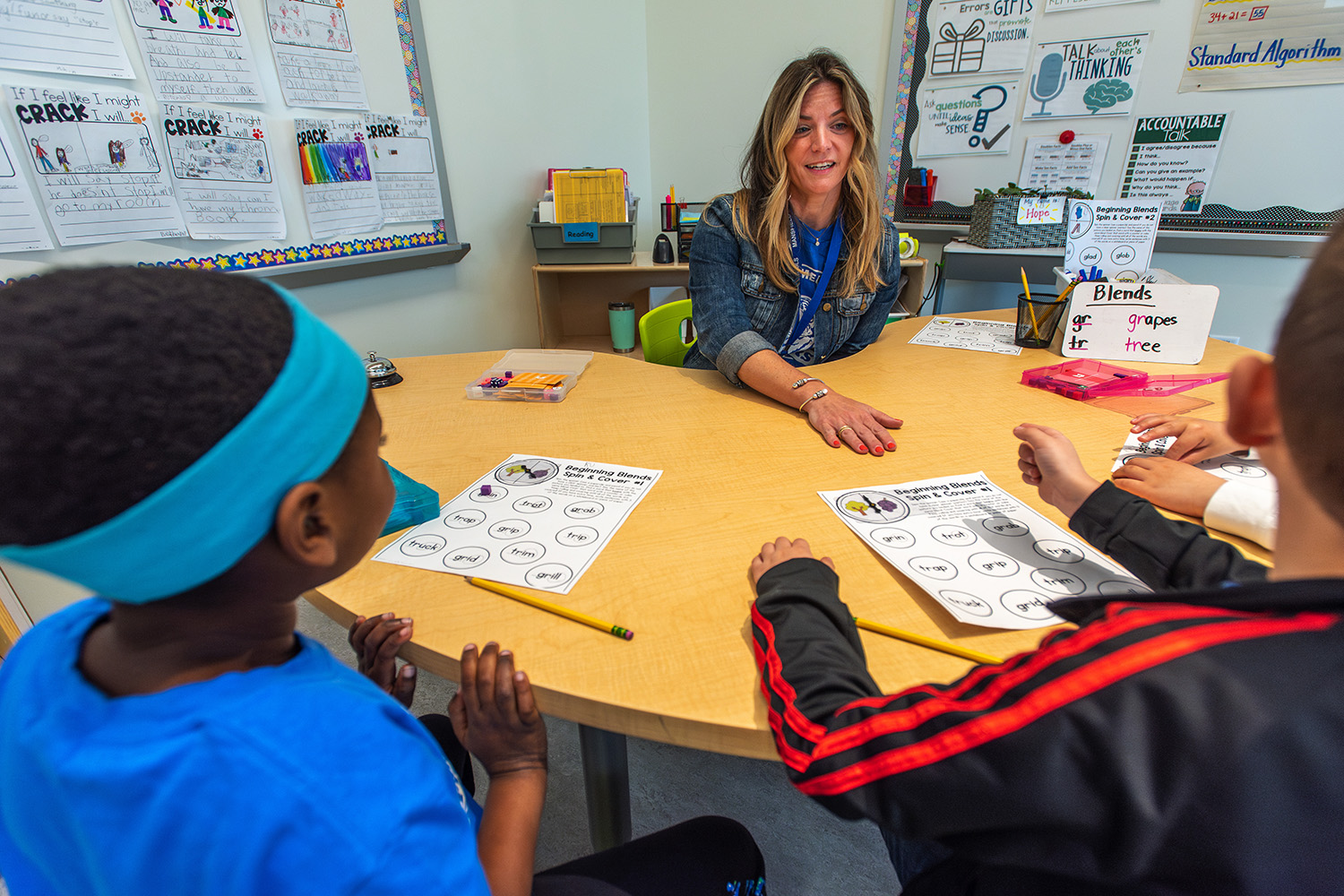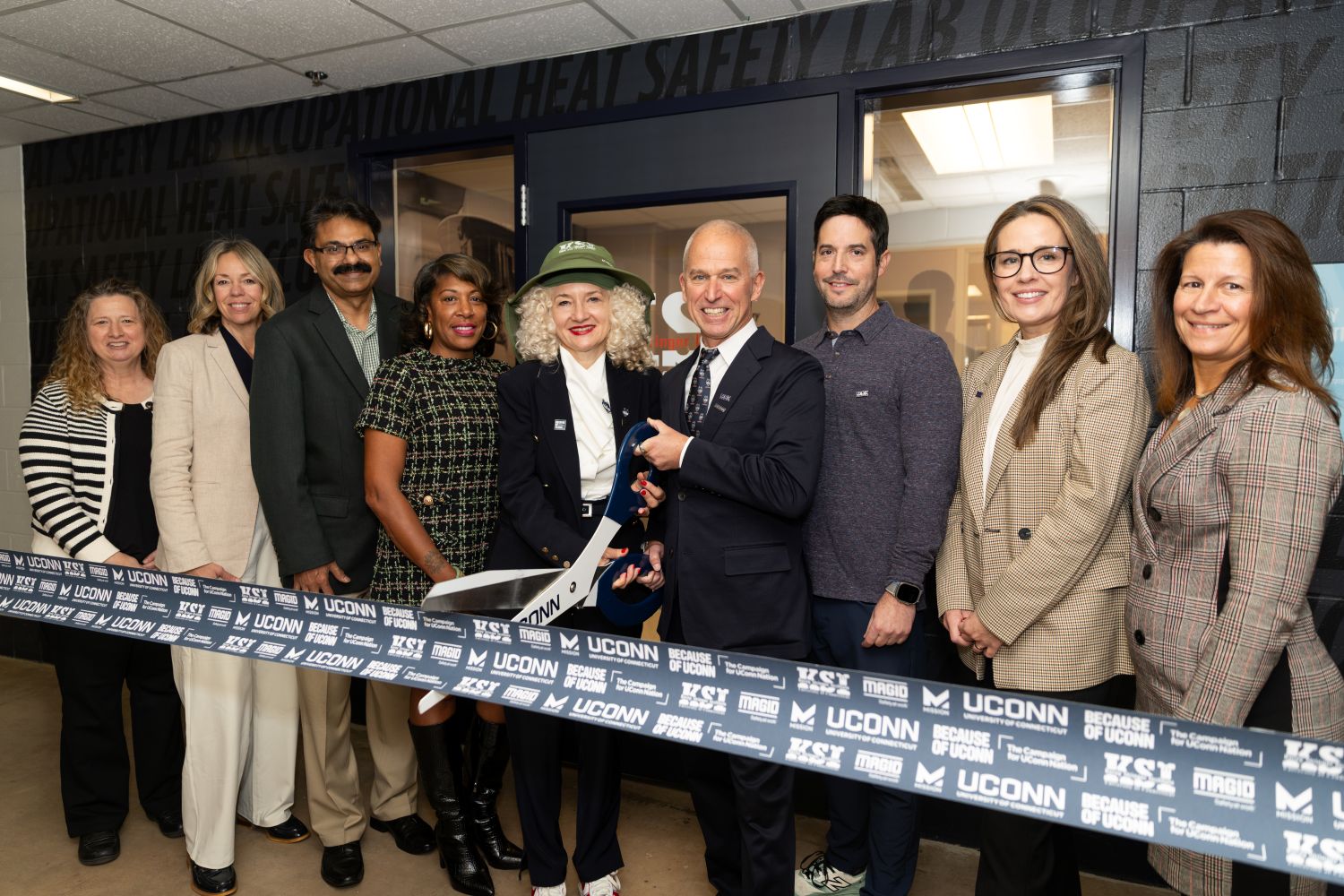UConn’s reputation as an entrepreneurship academic powerhouse climbed significantly in the 2026 rankings released Nov. 12 by The Princeton Review and Entrepreneur.
The results were based on 40 data points including academic offerings, faculty credentials, experiential learning, mentorship, and more.
The University was ranked No. 4 in New England for undergraduates and No. 6 for graduate students. UConn’s overall ranking was No. 29 for graduates (up from No. 34 last year) and No. 31 for undergraduates (up from No. 45). The rankings primarily included U.S. colleges and universities, but some international schools were also included.
“Over the last ten years, there has been tremendous growth in the number and quality of programs and resources available to entrepreneurs at UConn,’’ said Michelle Cote, interim director of UConn’s Werth Institute for Entrepreneurship & Innovation, established in 2017 thanks to a $22.5 million gift from pharmaceutical entrepreneur Peter J. Werth.
“Opportunities to explore and practice entrepreneurship and innovation are embedded in schools and colleges across campus, and students are making huge leaps in launching market-ready ventures as result,’’ Cote said. “It’s wonderful to see that progress reflected in this year’s rankings.’’
Professor Kevin Gardiner, director of UConn’s Innovation Quest (iQ) program says the ideas and the commitment from students are exceptional.
“We had over 200 registrants for Innovation Quest in 2025, from over 60 majors, and they included freshman up to Ph.D. candidates,’’ he says. “What was particularly impressive to me was the strength of some of the younger students. In fact, one of the top five teams that was invited to the Summer InQbator was made up entirely of freshman. It was not just the strength of their idea, but the team’s poise and confidence when presenting that shocked the judges when we learned that they were freshmen.”
OCHI Clothing Company: Intentional, Purposeful
Gustavo Malpica Sotomayor ’26 (BUS) came to UConn planning to become a doctor, but he will graduate in May as the CEO and co-founder of a unique clothing company called OCHI.
OCHI clothing was designed to combat surface-level images, curated half-truths and fleeting moments dominating social media, by presenting deeper messages. Designed with inverted text, it forces potential customers to question the image, the reflection, and even themselves.

“It isn’t just clothing, it’s a message, a mindset, a rebellion against the expected,’’ Malpica Sotomayor says. “It’s a unique form of self-expression.’’
Malpica Sotomayor found a career foothold in an undergraduate entrepreneurship class when he had to build a prototype of something to sell online.
“I’ve always been interested in fashion, but I wanted to do something different,’’ he says, of his clothing line, which is sold online and sometimes at pop-up events at UConn Storrs. He and four business partners are working on their business, trying new ideas and testing their grit. “We want to be intentional and purposeful,’’ he says.
“Most of my life I’ve been surrounded by people who own their own businesses,’’ he says. “It occurred to me that maybe business was ingrained in me. I decided to try it and it has been really, really fun.’’
OCHI won a School of Business’ Connecticut Center for Entrepreneurship & Innovation’s (CCEI) Get Seeded pitch and a $1,000 first prize. “But more than that, we gained valuable connections and good, honest feedback,’’ he says of the peers, professors, and alumni he worked with. “So many people here want to help you.’’
“I’m really grateful that I came to UConn. I’m getting the most value that I can from my education. I’m ready to branch out and go on to see what the rest of the world can offer me,’’ he says.
SedMed Is Helping Hospitals Keep Patients Safe
Jeremy Bronen ‘20 (BUS) founded SedMed, a toilet-lift assist device serving the elderly and the disabled, as an undergraduate.
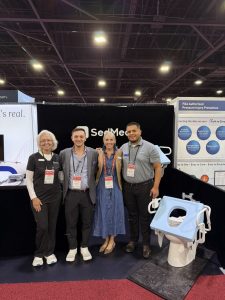
“Currently we are working with hospitals all over the country and retrofitting their bathrooms in inpatient rehab, post-op, and orthopedics,’’ Bronen says. “I keep remembering the CCEI Summer Fellowship accelerator I attended and [then instructor] Michelle Cote telling me I should pilot the device, and I said, ‘Where would we get $50,000?’ So far, we’ve raised $2.3 million and more is coming.’’
The company was a top five finalist at the Wolff New Venture Competition in 2020 and a CCEI Accelerate UConn program participant.
“SedMed would not exist without UConn’s entrepreneurship programs. Absolutely not,’’ Bronen says. “UConn gave me the education, the money for a prototype, and the network to raise funding.’’
“I’m optimistic about the future. We’re at a major inflection point now. We’ve found our market fit, we’ve got capital, and we’ve got the ability to make a difference,’’ he says.
SedMed customers share stories with Bronen about how the mobility device allowed them to care for their loved ones at home. “The best part of this business are the stories about the people benefiting from our innovation,’’ he says. “Those are the things that keep me motivated through the challenging days.’’
Shark Tank, Start-up Capital Highlight Recent Achievements
Jennifer Mathieu, executive director of CCEI, said in the last decade CCEI leadership has experienced tremendous momentum as entrepreneurship has become woven into the fabric of UConn.
“In 2025, we’ve celebrated many major startup milestones such as ‘onewith’ swimwear securing a deal on ABC’s Shark Tank. Alumni have raised more than $250 million in startup capital raised this year, including the largest single raise by a CCEI alum and dermatology drug company, Veradermics, at $150 million,’’ she says. “As our programming and the entrepreneurial ecosystem continue to strengthen, our founders are better equipped than ever to take their ventures to the next level.”
(see related article: Connecticut Center for Entrepreneurship & Innovation Recognized as a Global Leader in Venture Creation – UConn Today)
Professor Travis Grosser, interim director of the Boucher Management & Entrepreneurship Department, says the entrepreneurship ranking reflects much more than student success.
“This recognition validates our commitment to entrepreneurship education that goes beyond the classroom. Our faculty’s innovative approach—blending world-class research with real-world practice—ensures our students are prepared to launch ventures that will fuel Connecticut’s economic future,’’ he says. “At UConn, we’re not just teaching entrepreneurship; we’re cultivating the entrepreneurs who will shape tomorrow’s economy.’’
Startup Tackles Student Housing Availability Issues
Ayana Walters ‘28 (CLAS) had a tough time finding off-campus housing during her freshman year, and that experience eventually inspired her to create her own company.
She founded HuskySHARE this year to ease the process for students looking for off-campus housing, or looking to sublease their apartment when studying abroad or pursuing internships or co-ops. Last year, 36% of UConn’s almost 20,000 undergraduates in Storrs lived off campus.
“For me, amenities, price, and location are very important,’’ she says. “I also want to know if the landlord will shovel snow.’’
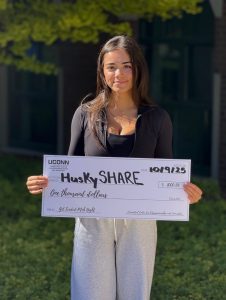
Beyond solving her own housing challenges, Walters says she created HuskySHARE because she did not want other students to experience the same stress that she did. She recognized that many other students were also struggling to find reliable housing. Searching across different platforms could be confusing, and raised concerns about whether the information was accurate or if reaching out was safe.
As a Werth Innovator, she brainstormed business ideas with peers. She enjoys being surrounded by like-minded student founders who not only supported and collaborated with her, but motivated her to help the aspiring entrepreneurs following in her footsteps.
She also credits UConn’s entrepreneurial community and David Ouimette, executive director of First Year Communities, for helping her pursue her interest. Ouimette “will stop at nothing to help you,’’ she says.
“I’m still pursuing a degree in economics with an eye toward pre-law, but becoming an entrepreneur has been very insightful for me. Entrepreneurship is not something I thought was possible until now,’’ she says.
Today she is partnering with a software developer to create a HuskySHARE website or app for the company, which she hopes to pilot by the end of spring semester.
“After I won a Get Seeded award, a lot of graduate students and past winners reached out said they were interested in what I was doing,’’ she says. “I think UConn’s entrepreneurship community is unmatched.’’
Reef-to-Table Keeps Oysters Fresh for Landlocked Customers
Keegan Jalbert ’25 will tell you nobody wants days-old seafood on their dinner plate. That’s why Jalbert, now pursuing a master’s degree in nutritional science, who is passionate about seafood- and land- farming, is debuting his food trailer soon, called Reef-to-Table.
The mobile food service will debut in Tolland and Windham counties initially for fairs and for catering private events. But long-term, he hopes to serve fresh oysters to land-locked locations where few customers get to enjoy fresh and delicious shellfish.

“We want to be the mobile oyster hub, and unlock new geographic markets,’’ he says about oysters, which rack up nearly $400 million in sales annually in the U.S., almost entirely in coastal communities. “Freshness and safety are top priorities when selecting seafood. It must be high quality, that’s part of our value proposition.’’
Jalbert has developed a trade-secret shellfish feed that keeps live oysters thriving during transportation. He received strong support from CCEI’s Get Seeded and Innovation Quest.
“The money I won allowed me to work on the technology and take steps toward my first retail oyster hub. Just a few days ago, we were invited to another entrepreneurial program, called VentureWell. These things would not come along without CCEI and the School of Business,’’ he says. “It’s tough bringing innovation to an industry founded in tradition, but better distribution of fresh shellfish can really boost sales for sustainable coastal farmers, and improve access to healthy seafood – a win-win.”
Jalbert said being an entrepreneur fills something within him.
“It is about being able to realize my vision of what can improve the world. To me, that’s about sustainable seafood distribution and access,’’ he says. “Entrepreneurship is the only way to do that in my eyes. I think it is the same for my peers. We all have a vision of what can be better in the world.’’

